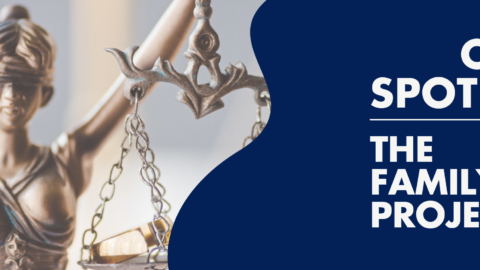The demise of Angelina Jolie and Brad Pitt’s marriage has captured headlines everywhere. Jolie and Pitt (collectively known as “Brangelina”) recently announced the end of their eleven-year relationship (though the marriage was only two years). The pair famously went public with their relationship very close to the end of Pitt’s prior marriage to Jennifer Aniston and have six children together (Pitt was added as an adoptive parent to Jolie’s previously adopted children).

According to media reports, the relationship fell apart over Jolie’s apprehensions about Brad’s parenting which prompted her request for sole legal and physical custody. “Anonymous sources” say Jolie thinks Pitt’s alcohol and marijuana use have become problematic. Her concerns came to a head during a transatlantic flight, when Pitt is accused of getting into a drunken argument with Jolie. When their 15-year-old son, Maddox, stepped in between them, it is claimed that Pitt hit Maddox in the face. L.A. County Dept. of Children and Family Services (DCFS) received an anonymous report, apparently not from Jolie, regarding the incident. Apparently, DCFS has now made recommendations that include drug testing for Pitt and therapy for all involved. Pitt and Jolie have agreed to the recommendations.
While requests for sole custody are common in divorces, the court has certain mandates in deciding custody. A custody order must assure that children have “frequent and continuing contact with both parents” except where such contact would not be in their best interest (Family Code §3020(b)). Family Code §3020(a) gives one example where it is not in the child’s best interests, where there has been “the perpetration of child abuse or domestic violence in a household.” The DCFS investigation helps Jolie show that Pitt should not have joint custody, but the latest report is that Jolie will not testify against Pitt in any prosecution, which indicates that her position might be softening.
When a court is specifically faced with a request for sole custody based on drug use of the other parent, a court must determine if the use is ‘habitual.’ Testing can be ordered under Family Code §3041.5 if a determination is made based on a preponderance of the evidence that there is “habitual, frequent or continued use” of a controlled substance. The testing recommendation by DCFS makes it likely that the family court would also order testing of Pitt because likely evidence exists to support testing.
As bad as their custody issues appear to be, they may be the only issues for them to work out. The parties have a premarital agreement that addresses all financial issues, so Brangelina will at least be able to move on financially soon.
Sarah Van Voorhis and Ariel Sosna, both Certified Family Law Specialists, are founding partners of Van Voorhis & Sosna. Follow them on Twitter at @VanVoorhisSosna.



